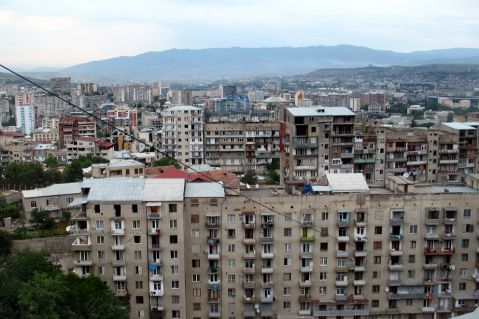21/08/09
Ratcha is a remote region of Northern Georgia, situated between Svanetia and South Ossetia.
It takes about 6 hours from Tbilisi to get there on a marshrutka filled with people, watermelons, bathroom tiles, a 21″ television and other goods impossible to buy up in the mountains.
Our final destination is the village of Chkvishi where the Arteli Ratcha residency is situated. The village is spread out on a hill overlooking the valley, a truly stunning location. It’s quite big and though most villagers have emigrated to cities, it comes alive in the summer when children and grandchildren are up for a holiday. In the winter the village is cut off by snow.
Arteli Ratcha foundation has held workshops and events there with Georgian and international contemporary artists since 2005. The main aim of the foundation is to bring cultural life to the Ratcha region where it is otherwise limited, educate young people about contemporary art and engage with local audiences.
Kote Jincharadze’s house, where Arteli Ratcha is based, built by his great grandfather at the end of the 19th century, hasn’t changed much for the last 100 years except for the addition of running water and a modern bathroom.
We spent the two days walking around the village, getting invited to supras and sampling local wine, collecting blackberries and thinking about ideas for future projects in Ratcha. Our idea was a village design festival (inspired by the culture of re-using and recycling everpresent in the village), Kote suggested a scarecrow competition and exhibition. We also helped to start off Kote’s new public art project in the village (he has already done a mural by a public table where he painted what the villagers asked him to) – paiting a wall of stones in different colours. The project will be continued by all the artists who visit Ratcha in the next few months.
In the evenings we watched films by Mikheil Kobakhidze, Kartlos Khotivari as well as Repentance by Tengiz Abuladze about persecution of artists in the Stalinist period.





